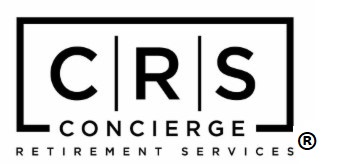David I Gensler, MSPA, MAAA, ASEA
We’ve seen these images and advertisements so many times that we don’t pay much attention to them anymore. They are on the booklets that the recordkeeping providers give out at enrollment meetings. They flash across the TV screen as part of the retirement based commercials for insurance companies and financial institutions. A silver haired, clearly retired couple (they are always a couple – rarely is anyone single) are about to embark on a trip, or they’re playing golf or they’re strolling hand in hand on the beach. They are free from the worries of earning a living and loving their lives in retirement. If that was ever the face of retirement (and for most folks it was not), a white paper from Empower Institute predicts that is not what retirement will look like for the vast majority of retirees and near-retirees (ages 45 and up) moving forward.
In the past, retirement was looked at as an end goal: you reached a certain age, were finally finished with work and now you would harvest the fruits of a lifetime of labor, with some help from Social Security and perhaps a monthly check from your employer’s pension plan. For our parents, retirement meant moving to Florida, living in a retirement community and never again thinking about work or volunteering. They had put in their time and paid their dues. A future lifetime of leisure was their reward.
For current retirees and pre-retirees, retirement is now more of a mindset. Workers close to retirement are eagerly looking forward to the next chapter in their lives. They are not buying homes on the golf course. They are not moving to Florida. Rather, they are moving to large cities, eating in trendy restaurants, volunteering for not-for profits and looking toward the gig economy as a way to boost late-life income (but only on their terms).
Generation X, which believe it or not is entering the pre-retirement phase of their lives, is preparing for retirement by starting to save earlier than their baby boomer parents (age 42 versus age 47). Research reveals that 52% of new retirees take a break from work (for an average of 2 ½ years) before re-entering the workforce. They then work for an average of nine more years. Interestingly, those who do go back to work tend to be retirees who previously worked in fields with flexible hours. Those folks were three times more likely to pursue self-employment. This suggests that familiarity with modern “flex careers” helps retirees to chart their own course in the gig economy.
The Gen Xers are much more comfortable with technology than their parents and in helping them to plan for retirement, their employers and advisors need to adapt to that. Rather than having someone dictate what they can and cannot afford based upon some retirement planning tools that they had little input into, the near-retirees are much more likely to seek holistic guidance from advisors. Utilizing apps and online services that they are quite comfortable with, they want to be part of the process. This is borne out by the survey that the Empower Institute did. In terms of planning for retirement, almost half of those surveyed said that they did their own research. Only about 20% said that they relied on a family advisor.
What sort of work do they think they might engage in? Here are the top five:
• Volunteering/Work for a non-profit
• Start their own small business
• Work only on their schedule (Uber driver, dog walker)
• Something creative (art, writing)
• Consulting freelancing or working part-time in an area that they already have experience in
It feels to me that there is however, a disconnect. With all of this optimism about living their “best life in retirement,” the top five concerns before entering retirement are the same ones that I have seen for the last twenty years:
• Healthcare costs – How might this eat into their retirement nest egg?
• Aging – Will they be sufficiently healthy enough to do the things that they want to do in retirement?
• Boredom – How will they fill their day?
• Filling my time meaningfully – Is how they choose to spend their time meaningful to them?
Today’s retirees and pre-retirees are hungry for financial knowledge and empowerment. They want to be part of the process. So employers and advisors will need to shift from being all-knowing experts to becoming more of a mentor. To asking questions and listening carefully to the answers they get versus presuming they know what the retirees and near-retirees want their retirement to look like. Those unwilling or unable to make that shift may not connect with the next generation of retirees.
Based in part on an article from the February 11th article from the National Association of Plan Advisors and the white paper of October 2019 from the Empower Institute
